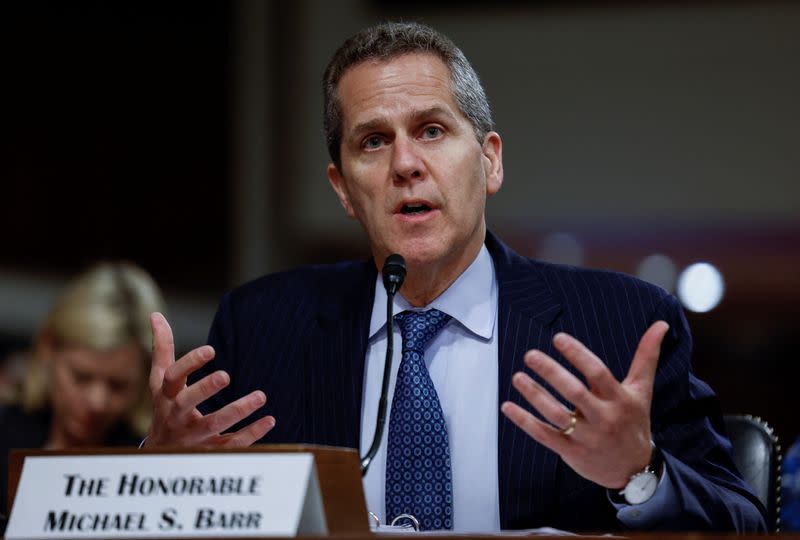Inflation data ‘disappointing,’ tight policy needs more time
AMELIA ISLAND, Florida (Reuters) – U.S. inflation data through the first months of 2024 has been “disappointing,” Fed vice chair for supervision Michael Barr said on Monday, leaving the central bank short of the evidence it needs to ease monetary policy.
“Inflation readings in the first quarter of this year were disappointing. These results did not provide me with the increased confidence that I was hoping to find to support easing monetary policy,” Barr said in remarks prepared for delivery at an Atlanta Federal Reserve conference on financial markets.

His prepared speech also delved into the financial regulation issues he oversees.
“We will need to allow our restrictive policy some further time to continue its work,” Barr said, reinforcing the Fed’s overarching message that rate cuts, highly anticipated by markets, are on hold until it is clear inflation will return to the Fed’s 2% target.
The Fed’s preferred measure of inflation, the Personal Consumption Expenditures price index, was 2.7% as of March and changed little in recent months after falling steadily last year. Data for April will be released next week.
Barr said he considered the economy still “strong … We have solid growth and low unemployment.”
But he said he was cognizant of the risks to both the Fed’s inflation goal and its mandate to keep unemployment as low as possible.
Barr said the current benchmark policy rate, which has been held in a range of from 5.25% to 5.5% since July, was adequate for the Fed to “hold steady and watch how conditions evolve.”
The U.S. central bank next meets on June 11-12.
(Reporting by Howard Schneider, Editing by Nick Zieminski)

